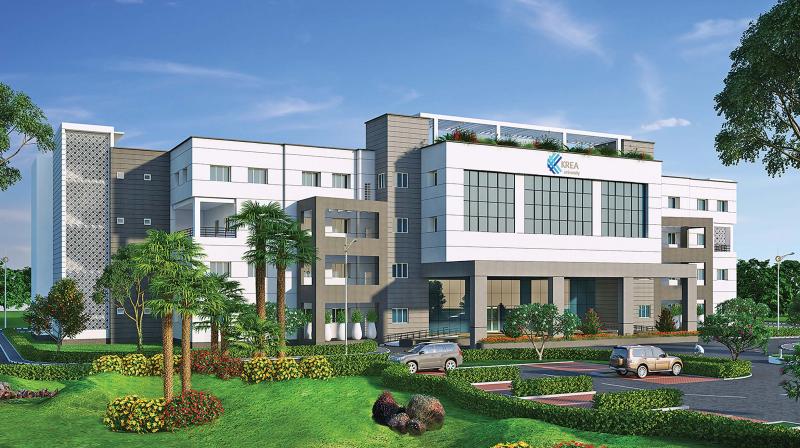South gets its first liberal arts varsity at Sri City

Chennai: Located at Sri City, Andhra Pradesh, at about 65 km from Chennai, is Krea University - a first of its kind liberal arts university in South India.
The brainchild of some of the brightest minds in the country including former Reserve Bank of India governor Raghuram Rajan, Anand Mahindra, R.Seshasayee and Sajjan Jindal, the university aims to create ‘creative thinking, socially responsible individuals’.
The curriculum reinforced by scientific cognitive research has been thoughtfully curated, encouraging students to pursue multiple interests. Speaking to Deccan Chronicle, noted a cademician, distinguished college professor of international economics, Middlebury College, USA, and Vice-chancellor, Krea Dr Sunder Ramaswamy, says, “A student is constantly evolving during the tenure in college and their interest may change during this period. Unfortunately, most of the educational institutions restrict the student to a rigid curriculum, which leaves almost no chance to discover individual interests.”
Explaining the broad, diverse curriculum, Dr Ramaswamy who has taken a break from his teaching career in the US to be a part of this project says, “The future is evolving and it is envisioned that the 21st century will be increasingly characterized by the complex interplay between humans, machines and the environment. Leaders of the future will have to ‘learn to learn’, have a sense of purpose and realize the social consequences of decisions with a sense of ethics anchoring their actions”.
The curriculum at Krea University has a unique ‘interwoven learning’ approach that weaves arts and sciences encouraging students to pursue subjects of their interests. The curriculum exposes students to various subjects in the first year enabling students to discover interests in subjects not explored earlier, Dr Sunder Ramaswamy explains.
The teaching approach adopted by the faculty will also be entirely new. “A mathematics class, for instance, will start with an elaborate discussion of the history of the subject and special emphasis is also placed on out-of-classroom learning.
The students will be exposed to a number of internships and workshops throughout their time at Krea, thereby creating porous boundaries between real-life and academics” says Dr Sunder Ramaswamy.
The low student-to-faculty ratio at Krea creates a warm, student-friendly environment where the student is not just a number also ensures that the teachers forge a lasting bond with the students.
The pioneer institution also boasts of several distinguished faculty from various disciplines selected through a rigorous selection process. This involved four stages of selection, including an activity where the faculty had to present a TED-style talk demonstrating how they would introduce a subject to the children. The chosen faculty were also interviewed by a team of eight people, comprising of members from the academic council and the board of management and two outside experts were also roped in to assist and weigh in their opinions.
Elaborating on this, Dr Ramaswamy says, “We wanted intellectually curious, potentially great teachers who could roll up their sleeves and help built Krea.” Notably, about 99 per cent of the faculty at Krea holds a PhD from acclaimed universities abroad.
“The students too are required to undergo an extensive selection process to secure admission to the university. Contrary to typical admission procedures which focus on the ‘cut-off’ marks of students, Krea has a adopted progressive admission procedure which strives to select students not based solely on their marks, but different facets of their personality”, says Prof Mohammed A Kalam, Dean-Admn & Regulatory Affairs and professor of anthropology, Krea.
“For example, the university’s Immersion Day had students going out to visit sites of historical, economic, social or political importance in the city, followed by a reflective essay about the same and a math/reasoning test, group discussions and a group presentation and finally a personal interview”, he adds. Parents too were a part of this day and were given an opportunity to interact with the faculty. This comes as a rather refreshing change considering the fact that the conventional higher education scene in India is not very inclusive of parents.
Founded with the mission,’ Kreativity and Action’, Dr Sunder Ramaswamy says, “The courses offered at Krea will open up several potential pathways for its students, all the while creating ‘credible, socially responsible, ethical’ individuals.”
Krea offers a four-year residential undergraduate programme in Liberal Arts and Sciences. The first cohort of the undergraduate programme will commence classes in August 2019.

